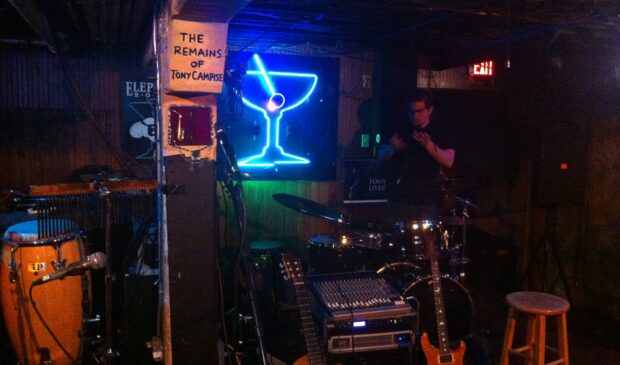Working group to study feedback, surveys for city’s $4.5M Live Music Fund
Tuesday, November 12, 2024 by
Chad Swiatecki The Music Commission has formed a working group to evaluate the execution of the second year of the Live Music Fund, which recently awarded $4.5 million to just over 100 musicians, promoters and music venues throughout the area.
The group was formed partially in response to early feedback on the program collected by the advocacy group Austin Texas Musicians, which presented a sample of the more than 200 anecdotes and social media posts it has gathered from some of the more than 1,200 applicants for the awards. The group is also conducting a survey about the grant program, which is expected to be examined along with a forthcoming survey from the Economic Development Department regarding the application and scoring process and how the awards will be used.
In a substantial change from the pilot version of the program, artists and promoters selected for awards received $15,000 or $30,000 this year, compared to the $5,000 and $10,000 amounts given last year. While the amount of funding was increased to open the process to music venues for the first time, the larger award amounts have received criticism in the creative community because fewer total awards were available.
Pat Buchta, CEO of Austin Texas Musicians, during a presentation at last week’s commission meeting offered some of the comments the group has received. This shed light on the negative impacts of fewer awardees, the need for applicants to learn their scores and receive feedback on their submissions, and confusion about the importance of making events accessible for people who are disabled or hearing impaired.
While commissioners discussed how to handle some of the perceived misunderstandings and misinformation included in the feedback, Buchta noted that bringing the comments to light shows the need for the city and other stakeholders to provide more information and assistance to applicants.
“Some of the talking points or comments may just point to the fact that some issues need some clarification,” he said. “If musicians have the wrong idea about certain things then it’s obviously our job, as well as the job of everyone here, to make sure that musicians are educated about what the facts are going forward.”
The written feedback also included praise for some of the instructional resources available for applicants prior to the submission deadline, including a workshop held by the Museum of Human Achievement arts space.
Commissioner Lauryn Gould said she’d like either the ATM survey or the city’s survey for applicants to include questions about whether respondents took advantage of any assistance offered by the city or other groups to learn how to create the strongest proposal possible.
“There are a ton of applications and there are a ton of really amazing people applying for this fund, and you have to figure out how to narrow it down in some way,” she said. “I’d like to suggest that in your survey you include maybe some follow-up to ask if you had these problems during the application, were you able to attend these office virtual office hours? Were you able to ask questions of the staff? Were you able to get your questions answered in a timely fashion? Because this is a very overwhelming process.”
The working group will work in parallel with a similar group formed recently by the Arts Commission to evaluate and make recommendations for the next cohorts of the city’s three Cultural Arts grants programs. Music Commission Chair Nagavalli Medicharla, who is also on the Arts Commission, asked two members of the Music Commission to sit on the arts working group as well to advise on the handful of musicians who apply for arts grants.
Commissioner Scott Strickland, who voted against the new working group, said the move should be put on hold until the city has completed the survey process and can provide more details about this year’s class of recipients. Strickland also questioned whether the group’s recommendations to EDD staff would end up carrying much weight in shaping the structure of next year’s program.
“The last two times that we have done a working group with the Music Commission, the findings that we have presented to Economic Development, basically they said thanks, and then they kind of just did what they wanted to do,” he said. “Basically all of the hard work that we normally do in terms of the findings and everything … they kind of just take our recommendations, they combine it with everything else that they have and then they kind of do what they’re gonna do.”
Photo made available through a Creative Commons license.
The Austin Monitor’s work is made possible by donations from the community. Though our reporting covers donors from time to time, we are careful to keep business and editorial efforts separate while maintaining transparency. A complete list of donors is available here, and our code of ethics is explained here.
You're a community leader
And we’re honored you look to us for serious, in-depth news. You know a strong community needs local and dedicated watchdog reporting. We’re here for you and that won’t change. Now will you take the powerful next step and support our nonprofit news organization?






